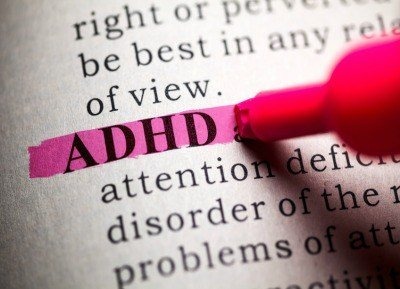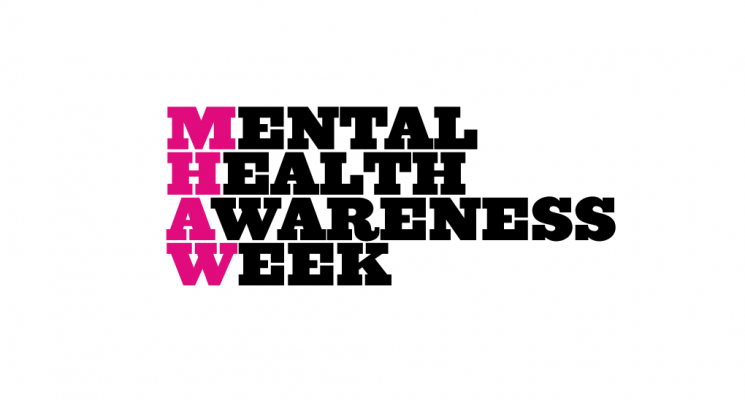Private Psychologist London | Psychologist Counselling | The Blue Tree Clinic

Why would I see a Psychologist?
People come from all over the world to see us for all kinds of reasons. You may want some advice on your life situation or want help in developing personal skills, or you may be struggling with a number of issues which our friendly psychologist has experience in treating.
Psychology is the study of mind and behaviour
Psychologists
You may be going through a particularly difficult time or you may not want to wait months on a waiting list for treatment to help you move on with your life.
Psychologists study for years, to enable them to help you, they are Drs in the field of psychology and practice various therapies.
ADHD Signs & Symptoms | The Blue Tree Clinic

Attention deficit hyperactivity disorder (ADHD) is when an individual exerts behaviours which involve hyperactivity and inattentiveness. Here at The Blue Tree Clinic we have effectively and successfully treated individuals with ADHD via the use of therapy and medication. Our therapists are expertly trained in dealing with ADHD. Our therapist will initially begin by forming a strong relationship with you, gaining your trust and understanding. . They will assess your symptoms and look into providing the therapy which suits you and your needs best.
What is ADHD disorder, the types, signs and symptoms of adult ADHD the treatments and therapys available from The Blue Tree Clinic in the UK.
https://thebluetreeclinic.com/conditions/attention-deficit-hyperactivity-disorder/
Nutrition Consultations | Private Nutritionist | The Blue Tree Clinic

Nutrition consultants offering personalized nutrition plans tailored to your health goals to enable you to maintain a healthy lifestyle, based in London, UK.
During your first visit with our private nutritionist, we provide you will receive a detailed macronutrient and micronutrient report. Our state of the art facilities assesses your body weight, body fat percentage, and metabolic rate. Regular follow up appointments are booked in with each client to offer personalized support and advice throughout the programme.
https://thebluetreeclinic.com/therapy/nutrition-consultations/
Saving Money Addict
Saving Money Addict
Money makes the world go round, but are you addicted to saving money?
There is a famous saying “Money makes the world go round” and many claims that this is not true. However, saving money plays a vital role in everyday life. Money in itself is of little worth however what you can achieve with money can be life-changing; be it sending your child to a private school, paying for a holiday or even paying for your lunch. Money can be the cause of upset and success however for some money can become a huge problem and can even become an addiction. Be it an addiction to saving money relentlessly or spending your money in uncontrollable ways. Saving money is a great thing and many of us are unable to save money. However getting carried away to saving money can cause issues. So how can you tell if you have an addiction to saving money?
Savings Addict?
- Do you feel guilty when you spend money?
- Do you feel like you have to justify the money you spend?
- Do you always look for vouchers and sales?
- Do you always search for reduced things?
If the answer is yes to these questions then you could potentially have an addiction to saving money!
So when do you know you have a real addiction? It is all well and good for controlling your money but it can become a serious problem! So when do you know that you have a real addiction to saving money? A big hint is how much it consumes your life! If you go into a shop and obsess over the cost of each individual thing and worry about the total bill at the end of the shop this could become problematic. Is it overpowering to the extent that you cannot enjoy small things in life? Such as feeling guilty for buying a 60p chocolate bar? If you think that you are addicted to saving money make sure you talk to someone about it! Addiction can be a huge problem within itself but it can lead to other issues such as anxiety (being worried about going out and spending money) and depression (being low and upset about your spending habits).
Here at The Blue Tree Clinic, we are here to help you! We will give you a shoulder to cry on and a listening ear! We will give you tips, tricks, and skills to help you find logical and reasonable ways of saving money but still living! But in the meantime here are:
Our top tips of letting go of the control.
– Make a spreadsheet of how much money you have coming into the bank and how much you need to save and how much you can spend every month without feeling guilty, be it £10 or £100.
– Compromise! Save for something you really want or need rather than spending money that in a months’ time won’t be used and will most likely be thrown in the bin.
-Enjoy the little things! It is okay to spend that 2 pounds for a coffee! ESPECIALLY if it puts a smile on your face!
-If you do need to save for something important remember you are just as important and your mental health and wellbeing is a priority! SO whilst saving is important don’t forget to occasionally treat yourself
-Talk about the fact that you are struggling! Friends and family have probably had moments where they have had to save intensely! Ask them how they coped! They may even treat you to that magazine you so badly want but cannot justify!
Contact Our Private Consultant Psychiatrists in London, having a huge amount of experience in addressing and relieving all sort of issues over many years.
Source URL: https://thebluetreeclinic.com/saving-money-addict/
Millenials and Mental Health

Millennials and Mental Health:
Blue Tree intern Maddy Lykourgos discusses the barrier between millennials and mental health services…There has been an increasing amount of attention brought to how millennials deal with everyday life stressors, and they’re often labelled the most lonely, anxious and depressed generation. They have high diagnosis rates of mental health disorders, and suicide is one of the leading causes of death for this group. Concerningly, they are also the least likely to seek treatment, which is particularly unfortunate given that early interventions can lead to lower long-term detriment. So, it stands to reason that there are some barriers deterring millennials from accessing psychological services.
Common barriers include…
- Accessibility: The generation of the millennials is generally highly-educated, but living costs continue to rise and financial burdens restrict them spending money or time on themselves; mental health is often not a priority. With increasing strain on the NHS, more people are being signposted to private services, which can be expensive and inconveniently located. However, clinics, such as The Blue Tree Clinic, are striving to make treatment as accessible to all, offering discounts to people with lower economic means, such as students and a variety of modes such as online, telephone or face to face, to slot into a busy schedule.
- Misperceptions: Although mental health stigma has significantly decreased, for many, it remains difficult to discuss. With highly-trained professionals, it is always the aim that you build a rapport with your therapist and feel comfortable in their company. However, all too often, people maintain the attitude that they don’t need help, that things will pass and, though they may, underlying issues may recur if undealt with.
- Unrealistic expectations of ourselves: In an all-or-nothing culture that holds high esteem to both social and academic achievements, we can easily get carried away with our perfectionistic tendencies to succeed. Moreover, with the advent of social media and Photoshop, society creates unrealistic and false projections of what we may aspire to be or achieve. These pressures can make it difficult to gauge how we are doing personally and places an unnecessary disesteem on wanting to accept help if we feel our goals are unattainable.
What to do…
- Schedule in some time for yourself. Empty time is not wasteful. It is important to create a space for yourself to unwind and reflect on how things are going. In an age of 24-hour digital communication and instant gratification, spare time is often disregarded. It’s arguably more difficult to form meaningful relationships because we are out of practice putting effort into socialising in the same way as previous generations.
- Reshape your ideal of happiness. Do things that you enjoy rather than getting caught up in social media reality and try to be self-aware. It can be helpful to think of a swan elegantly gliding across the water- at least that’s what onlookers see; the part they don’t see is the frenzied paddling of the swan’s feet in order just to stay afloat. Things are rarely as effortless as they look and it can’t hurt to remind ourselves that it’s okay if things don’t come as easily to us as we had hoped. Make sure you know the difference between a problem and a catastrophe. Mindfulness and CBT can be particularly helpful in trying to stay present rather than worrying about the future or dwelling on the past.
- Don’t be afraid to talk about it. It’s natural to fear being vulnerable, and there is something about sitting in front of a stranger and opening up that is particularly daunting. We can find ourselves craving approval from external sources, so in a world where mental health stigma still exists, it can make it harder to be open about our difficulties and getting help to deal with them. It can be extremely isolating to feel as though there is no one to turn to. Checking in with how you’re doing is crucial, even though it may seem like talking about things makes them more real or more of an issue.
Whether it’s because we can’t justify sacrificing the time, or if we don’t know which point or from where to ask for help, millennials seem to struggle to access mental health services, and younger generations seem to be following suit. If it’s a case of not knowing where or what type of psychological intervention to ask for, talking to your GP can be a good way to get suggestions. Additionally, clinics such as The Blue Tree Clinic allow you to have a consultation with a trained professional who will then work with you to ascertain which member(s) of the multidisciplinary team would be most beneficial to you. They’re dedicated to making the whole process accessible and flexible, in order to make you as comfortable as possible. Contact Our Private Psychologist now to get started.
Source URL: https://thebluetreeclinic.com/millenials-mental-health/
Mental Health Awareness week - The Blue Tree Clinic

Mental Health Awareness Week 2018 (14th-20th May)
Blue Tree intern Maddy Lykourgos promotes Mental Health Awareness Week…
This year’s theme for Mental Health Awareness Week is stress and how we cope with it. Naturally, stress impacts our state of mind, mood, emotions and how we perceive the world. In other words, it majorly affects our mental health.
Essentially, we have good stress (eustress) and bad stress (distress). Both are natural responses adapted to release hormones that alert the rest of the body and mind that action must be taken. An example of the former would be something with a tangible goal, a challenging assignment that’s difficult but doable, or goal-oriented physical exercise. In this case, stress levels return to normal once the task has been completed. On the contrary, distress is harder to combat and diffuse; it often takes longer for the individual to recover, because the body remains vigilant against a potential and non-tangible worry. If this state persists it can lead one to withdraw, feel anxious and even depressed.
When we are experiencing stressful periods of time, our adrenal glands secrete more of hormones called cortisol, adrenaline, and norepinephrine. Cortisol is vital to regulating the metabolism, and adrenaline and norepinephrine produce a reaction to threat: the fight, flight or freeze response. However, in stressful situations, even when there is no immediate threat, our body mimics the fear response and these levels are maintained in excess amounts. This is because, without a threatening stimulus, we cannot respond directly to it – that is, we cannot fight, flee or freeze, and therefore, these levels remain high and we stay hypervigilant towards a threat that is not there. Sustained high levels of these hormones can interfere with learning and memory, lower the immune system and cause problems with physical health, such as increasing blood pressure, cholesterol and contributing to illnesses like heart disease.
Moreover, raised levels of hormones like cortisol can deplete the neurotransmitters serotonin and dopamine that regulate our mood. Therefore, stress is closely linked with depression and anxiety, because the physiological sensations we feel, such as racing heart rate and sweating, tell us there is something to worry about and something we have to be prepared for if we are to keep ourselves safe.
As it’s an evolutionary, and often involuntary, response to get stressed, it can feel like we have no control over it; so, a good way to combat stress is to change your perception of it. Negative situations can be awful to have to go through, but only by going through them do we learn that we’re strong enough to do so. It’s not so much that positive thinking will relieve every burden you have, but more a sense of recognizing that we are more resilient than we believe. We have constantly put in seemingly impossible situations and yet somehow we manage. It means we carry an arsenal of life experience that can get us through periods of stress, mostly because we have done so before.
What can The Blue Tree Clinic do to help?
We offer a range of treatments that can help reduce the harmful impact of stress. Approaches such as mindfulness can help with relaxation techniques, or CBT can aid in reframing some of the negative thoughts that may be helping to maintain the stress. Other talking therapies, such as counseling can help to ease the burden of stress on both our physical and mental health by talking through some of our stressors. In the meantime, it can be useful to make a list of specific problems that trigger your stress, and for those that you can do something about, write down a list of solutions; for those that you can’t do anything about, worrying about it is futile, so stop allowing it to get you down. It seems oversimplified, but distinguishing between problems you can and can’t solve allows us some extra time to schedule enjoyable and relaxing activities rather than avoiding these all together and allowing the stress to persist.
In the spirit of Mental Health Awareness Week, we urge anyone experiencing stress or anything else that is impacting their mental wellbeing to contact us now at The Blue Tree Clinic. Contact our friendly Private Therapist for a safe, comfortable conversation.
Source URL: https://thebluetreeclinic.com/mental-health-awareness-week/
What is the Difference Between a Psychologist and a Psychiatrist

What is the Difference Between a Psychologist and a Psychiatrist
It’s a question we get asked a lot. What is the Difference Between a Psychologist and a Psychiatrist?
What is Psychology?
Psychology is a science which looks to investigate the mind and how the mind affects thoughts and behaviours. This can be investigated by looking at how an individual act, interacts with others, and how they think and feel.
What is Psychiatry?
Psychiatry is a medical science which looks at diagnosing, treating and preventing various illnesses and conditions. Psychiatry is usually provided by a doctor who has decided to specialise in mental health.
Psychologist and Psychiatrist
When looking at psychology and psychiatry there are various similarities and differences to bear in my mind. One of the biggest differences between the two is that an individual who practises psychiatry can prescribe medication whereas a psychologist cannot provide medication but rather provides therapy by looking into an individual’s past and teaching the client coping strategies.Another difference between psychology and psychiatry is the training that the professionals will undergo. A psychiatrist will do a medicine degree and then specialize in their area of interest. Our London psychologists will do a bachelor degree, usually in psychology, and then go onto do a clinical doctorate (although other routes are available).Despite psychology and psychiatry being different branches of science, the two often interlink. Clients are often given a mixture of both psychiatric and psychological treatment such as cognitive behaviour therapy being given at the same time as the client being on receiving anti-depressant medication.
Source URL: https://thebluetreeclinic.com/what-is-the-difference-between-a-psychologist-and-a-psychiatrist/
